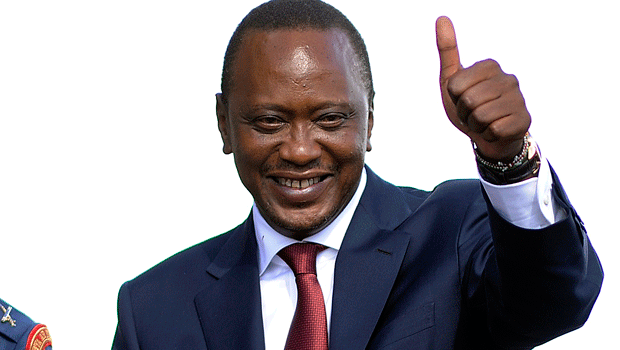 Kenya's President Uhuru Kenyatta is leading efforts to give a fresh impetus to the African Peer Review Mechanism (APRM), which was initiated 12 years ago to institutionalise good governance and democratic leadership on the continent.
Kenya's President Uhuru Kenyatta is leading efforts to give a fresh impetus to the African Peer Review Mechanism (APRM), which was initiated 12 years ago to institutionalise good governance and democratic leadership on the continent.
The Kenyan leader, who was elected APRM forum chairperson in June, will convene a summit of heads of state on September 11 to resolve the problems that have frustrated the initiative, including failure by states to fund activities and reluctance by some countries to be peer-reviewed.
The APRM was the brainchild of former South African president Thabo Mbeki, who led other African heads of state in signing onto a programme that would see countries agreeing to be assessed by fellow African countries and encouraged to improve their governance.
It was seen as a major step towards ensuring Africans were finding solutions to African problems, and taking charge of the continent's destiny. With the APRM defining "good governance" and "democracy" in the African context, it was envisaged to enable African countries to conduct their own appraisals, have constructive dialogue with each other and share best practices among themselves.
In APRM, the region's leaders not only saw an African-owned and African-driven system that would help Africa improve its governance; but they also saw a political tool that could help them keep the West from poking its nose in its affairs.
It helped many countries to open up the political space and its reports have been used by donors, foreign investors and nations such as Ghana to build their international reputation as reformers and well-governed countries.
However, the APRM has faded fast from the collective memories of most Africans because a number of the 35 countries that have signed up -don't pay their minimum $100,000 annual contribution.
Last year, Djibouti requested to be reviewed, but APRM said it was too broke to travel to the country to conduct the review - which costs anything between $1 million to $3 million. Another problem facing APRM is that very few countries that have signed up are not willing to be reviewed. To date, only 17 out of 35 member countries have been reviewed. In 2006, Ghana completed its first review, followed by Rwanda and Kenya in 2007.
Algeria and South Africa did their review in 2008 while Benin, Uganda, Nigeria and Burkina Faso in 2009. Mali, Mozambique and Lesotho followed in 2010, Mauritius in 2011, Ethiopia; in 2012 and the last countries to be reviewed were Sierra Leone, Tanzania, Zambia in 2013.
And those that have been reviewed more often than not refuse to implement the recommendations and reforms proposed by the review team.






0 comments:
Post a Comment